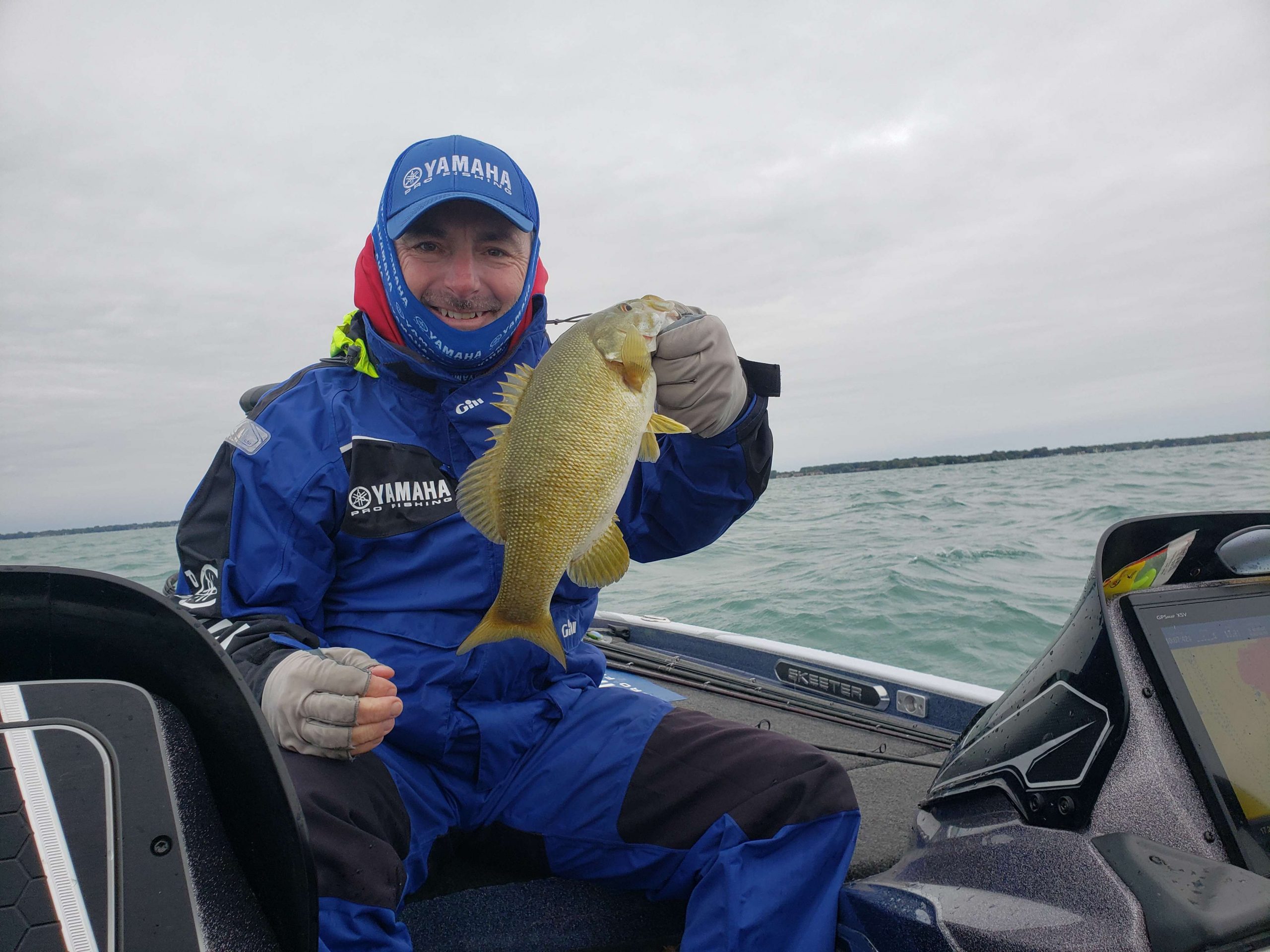
First off, let’s talk a little about fall cold fronts. I know you often hear that they aren’t as hard on the bite as spring cold fronts. That’s not been my experience, and it doesn’t track with the biological facts.
In the spring a cold front sets the bite back but, no matter that, bass activity is on the upswing. The water will warm over time, and the fish are generally more active. It’s just the opposite in the fall. Things are slowing down over time. A cold front makes that worse. It accelerates the process because water temperatures will not recover.
It’s all about their metabolism. Every slight reduction in the water temperature slows things down. And, unlike what happens in the spring, the long-term trend isn’t positive. It’s negative.
At the same time, though, there are a couple of factors that move things in the opposite direction. One is the need to put on weight for the upcoming winter. You hear that need referred to as the fall feeding frenzy by a lot of anglers. It’s real.
Bass don’t think and they don’t plan ahead, but they do have instincts that have kept them alive and reproducing for thousands of years. The need to put on weight before winter hits is one of them. Without that extra weight, many bass would die. For them, spring would never come.
They also need to eat for another basic biological reason — they’re carrying eggs. They’re already inside the females, and they are developing. The eggs aren’t viable and they couldn’t survive outside the body of the females, but they are there and they are taking nutrients from the females as they develop. The females need to replace those nutrients.
Remember: In Florida and other warm places there’ll be bass on the beds before Christmas, maybe before Thanksgiving in some places. And even here in Kentucky there will be some of them doing their thing in the next three or four months.
The best way to truly understand this is to think about other pregnancies. Be it man or beast, babies develop over time. Just because you can’t see the physical effects of a pregnancy doesn’t mean it isn’t there or that the female isn’t nourishing the babies inside her body.
Something else about the fall going into the winter is that it affects bass differently depending on their size. This observation comes mostly from my experience as an angler, not as a fisheries biologist.
Smaller bass are more affected by cold fronts and cold water temperatures than bigger bass. In my years on the water I can count on both hands the number of 8-inch bass I’ve caught in water that’s less than 45 degrees. At the same time there’s no way I can count the number of 5-pounders that I’ve caught from the same water. I can assure you, however, that it’s a high number.
I do not know, and have no real theories, about why this phenomena occurs. I just throw it out there for you to think about. A cold-water bite might not be as frequent as a warm-water bite but when it does happen it’s likely to be something worth remembering.
Here’s the takeaway from all of this: Think about what’s really happening when you go fishing this fall, and don’t be afraid of the cold. You might catch a few really big ones, and nothing will warm you up faster than a couple of big bass.





